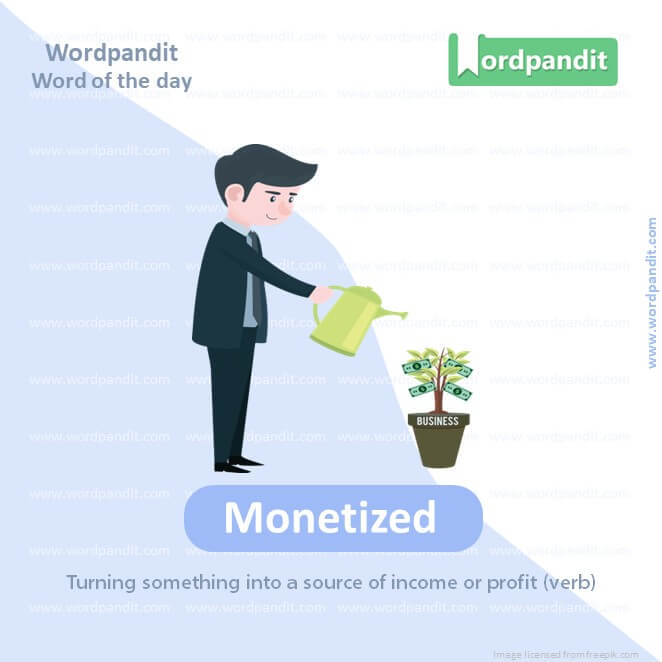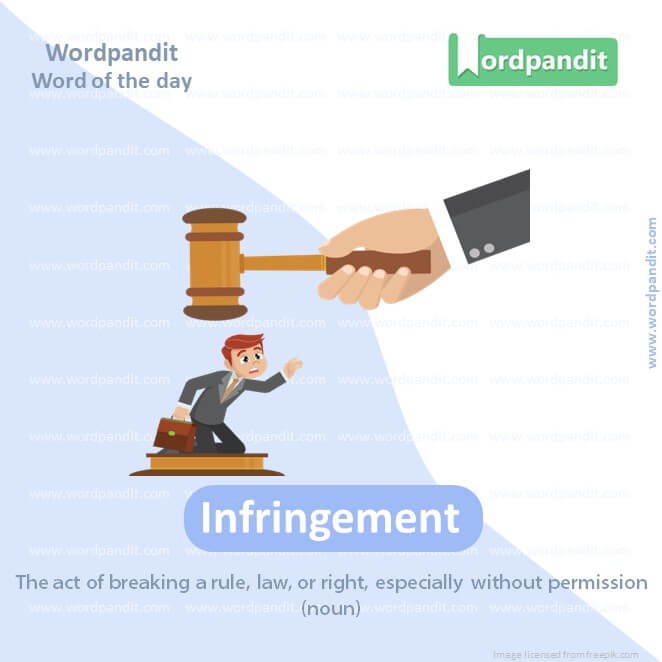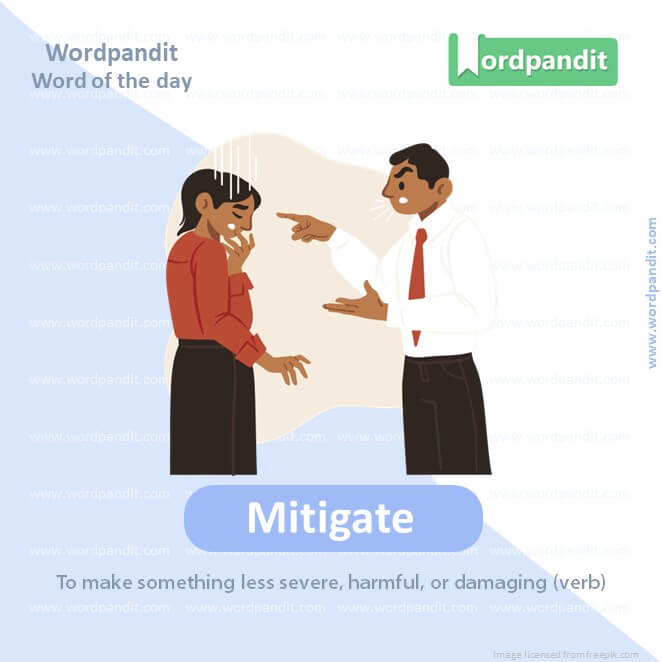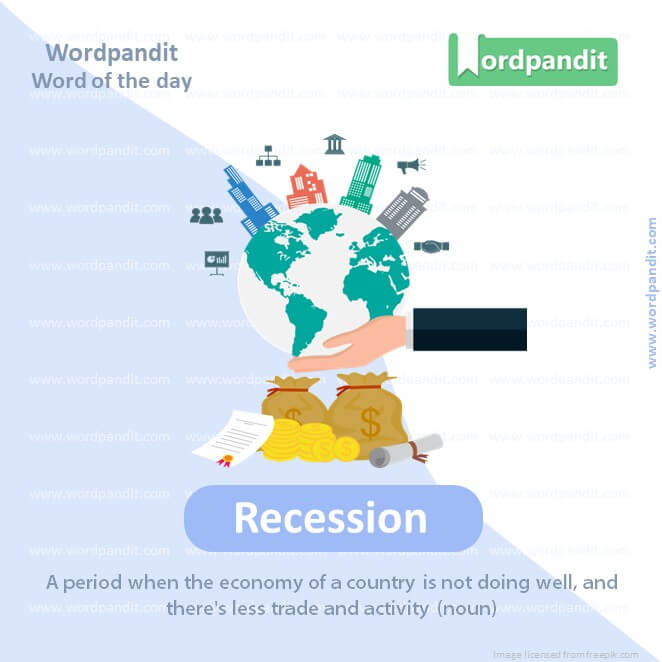Daily Vocabulary Words: List of Daily Used Words
Hi there. Welcome to this special section @ Wordpandit.
Our endeavour here is straightforward: highlighting important daily vocabulary words, you would encounter in The Hindu. This is your repository of commonly used words; essentially, we are posting a list of daily used words. Hence, this has significant practical application as it teaches you words that are commonly used in a leading publication such as The Hindu.
Visit the website daily to learn words from The Hindu.

WORD-1: Plagiarism
CONTEXT: HoB said that it reached out to Meta to report plagiarism and that 16 posts were taken down as a result.
SOURCE: The Hindu
EXPLANATORY PARAGRAPH: Imagine if you drew a beautiful picture, and then someone else showed it to everyone, saying they drew it. That wouldn’t be fair, right? Plagiarism is like that. It’s when someone takes someone else’s work, like stories or music, and says it’s their own. We should always do our own work and give credit to others when we use theirs.
MEANING: The act of copying another person’s ideas, words, or work and pretending they are one’s own. (noun)
PRONUNCIATION: Playjeeuhrizum
SYNONYMS: Copying, Piracy, Theft, Imitation, Counterfeiting, Bootlegging, Appropriation
USAGE EXAMPLES:
1. The student was caught for plagiarism in his essay.
2. Many websites check for plagiarism before publishing articles.
3. It’s essential to cite your sources to avoid plagiarism.
4. Plagiarism can lead to severe consequences in academia.

WORD-2: Monetized
CONTEXT: they’ve monetized far past anything I’d feel comfortable doing on HONY.
SOURCE: The Hindu
EXPLANATORY PARAGRAPH: Let’s say you have a toy, and whenever someone plays with it, you get a coin. That means you’ve turned playing with the toy into a way to earn money. That’s like “monetizing” something. It’s when you make something into a way to earn money.
MEANING: Turning something into a source of income or profit. (verb)
PRONUNCIATION: Monehtized
SYNONYMS: Capitalize, Commercialize, Profit from, Cash in on, Exploit, Trade on, Utilize
USAGE EXAMPLES:
1. She monetized her blog through advertising.
2. Many YouTubers aim to monetize their channels.
3. Mobile apps are often monetized using in-app purchases.
4. After gaining followers, he started to monetize his podcast.

WORD-3: Infringement
CONTEXT: It stated that only the owner or their legal representative could report copyright infringement.
SOURCE: The Hindu
EXPLANATORY PARAGRAPH: Imagine you have a special space where only you can play. If someone else comes into your space without asking, they’re breaking your rule. Infringement is like that. It’s when someone does something without permission, especially when it breaks a rule or law.
MEANING: The act of breaking a rule, law, or right, especially without permission. (noun)
PRONUNCIATION: Infrinjment
SYNONYMS: Violation, Breach, Transgression, Contravention, Trespass, Encroachment, Intrusion
USAGE EXAMPLES:
1. Copying music without permission is an infringement of copyright.
2. The company was sued for patent infringement.
3. The new construction was seen as an infringement on local wildlife habitats.
4. Parking in a no-parking zone is an infringement of city regulations.

WORD-4: Mitigate
CONTEXT: The challenge is to evolve a system to mitigate risks from such hazards, and provide early warnings.
SOURCE: The Hindu
EXPLANATORY PARAGRAPH: Imagine you have a really spicy piece of candy. If you drink some milk with it, the milk makes it less spicy. That’s like “mitigate.” It means making something less strong or bad.
MEANING: To make something less severe, harmful, or damaging. (verb)
PRONUNCIATION: Mitigate
SYNONYMS: Alleviate, Reduce, Diminish, Lessen, Relieve, Ease, Soften
USAGE EXAMPLES:
1. The trees were planted to mitigate soil erosion.
2. The city built walls to mitigate the effects of flooding.
3. Doctors gave him medicine to mitigate the pain.
4. They implemented strategies to mitigate financial risks.

WORD-5: Recession
CONTEXT: the multitude of glaciers and temporal variations in glacial recession makes monitoring and estimation of the risk more difficult.
SOURCE: The Hindu
EXPLANATORY PARAGRAPH: Think of a time when maybe fewer people were buying toys in a store. The store earns less money, and things slow down. That’s like a “recession.” It’s a time when businesses don’t do as well, and money is a little tight.
MEANING: A period when the economy of a country is not doing well, and there’s less trade and activity. (noun)
PRONUNCIATION: Rehseshun
SYNONYMS: Downturn, Decline, Slump, Depression, Slowdown, Drop, Setback
USAGE EXAMPLES:
1. The country faced a severe recession last year.
2. During the recession, many businesses closed down.
3. Economists predict a possible recession next year.
4. Families often cut unnecessary expenses during a recession.
WORD-6: Enormity
CONTEXT: The enormity of the challenge is seen in the National Remote Sensing Centre’s (NRSC) Glacial Lake Atlas of 2023.
SOURCE: The Hindu
EXPLANATORY PARAGRAPH: Imagine seeing a giant ice cream bigger than your house! That’s enormous! “Enormity” can mean something is really, really big. But it can also mean something is very serious or bad, like if someone did a big wrong thing.
MEANING:
1. The large scale or seriousness of something, often of a bad or immoral act. (noun)
2. Great size or extent. (noun)
PRONUNCIATION: Enormity
SYNONYMS: Immensity, Vastness, Giganticness, Wickedness, Atrocity, Monstrosity, Graveness
USAGE EXAMPLES:
1. The enormity of the disaster only became clear after several days.
2. Few people understand the enormity of the challenges he faced.
3. The film captured the sheer enormity of the universe.
4. The enormity of the crime shocked the entire community.
WORD-7: Vandalism
CONTEXT: sea level create formidable challenges such as inaccessibility, impossibilities in transporting and retaining excavation equipment, strong winds, difficulties in sourcing power and connectivity, and vandalism.
SOURCE: The Hindu
EXPLANATORY PARAGRAPH: Imagine if someone took a marker and drew all over your favorite book without permission. That’s not nice, right? “Vandalism” is when someone damages or destroys things that don’t belong to them just for fun or without a good reason.
MEANING: The intentional destruction of or damage to public or private property. (noun)
PRONUNCIATION: Vanduhlizum
SYNONYMS: Defacement, Damage, Destruction, Sabotage, Mischief, Desecration, Graffiti
USAGE EXAMPLES:
1. The park has been the target of repeated vandalism.
2. The school’s walls were covered in graffiti, a clear sign of vandalism.
3. Authorities are looking for the individuals responsible for the vandalism of the historic site.
4. The community came together to clean up after a spree of vandalism.
WORD-8: Resilience
CONTEXT: meeting the development needs of hill communities, disaster and climate resilience principles need to be assimilated into government policy and practice as well as private investment.
SOURCE: The Hindu
EXPLANATORY PARAGRAPH: Imagine a rubber band. When you stretch it and let go, it goes back to its shape. It’s strong and bounces back. “Resilience” is like that. It means being strong and able to recover quickly from difficult situations.
MEANING: The ability to recover quickly from difficulties; toughness. (noun)
PRONUNCIATION: Rehzilyens
SYNONYMS: Toughness, Strength, Robustness, Flexibility, Endurance, Fortitude, Grit
USAGE EXAMPLES:
1. Children often show amazing resilience after a setback.
2. The resilience of the community was tested after the storm.
3. One of the keys to success is personal resilience.
4. The forest has an incredible resilience, growing back even after fires.
WORD-9: Percolation
CONTEXT: The percolation of education at the grassroots and the dissemination of the benefits of the affirmative actions have led to a class of Dalits who now aspire for a proper space in politics.
SOURCE: The Hindu
EXPLANATORY PARAGRAPH: Imagine you have a jar filled with sand, and you pour water into it. The water will slowly drip or “sneak” through the tiny spaces between the sand grains. This slow movement of water through the sand or soil is called “percolation.”
MEANING: The process of a liquid slowly moving through a filter or porous substance. (noun)
PRONUNCIATION: Purkuhlayshun
SYNONYMS: Filtration, Seepage, Leakage, Drip, Trickle, Ooze, Sift
USAGE EXAMPLES:
1. Percolation of rainwater through the soil helps recharge groundwater.
2. They studied the percolation of pollutants in the local riverbed.
3. The coffee machine uses a percolation method to brew.
4. Engineers tested the percolation rate of the soil before construction.
WORD-10: Restraining
CONTEXT: there is democratic functioning within the party, so that grassroot leaders get proper political space, also restraining any dynastic tendencies that could be developing within these parties.
SOURCE: The Hindu
EXPLANATORY PARAGRAPH: Imagine you’re at the park, and you see a cute squirrel. You want to run and play with it, but your mom holds your hand tight so you won’t go. She’s “restraining” you, which means holding you back or stopping you from doing something.
MEANING: Preventing someone or something from doing an action; holding back. (verb)
PRONUNCIATION: Rehstrayning
SYNONYMS: Holding, Stopping, Preventing, Limiting, Checking, Hindering, Suppressing
USAGE EXAMPLES:
1. The teacher was restraining the excited students from leaving the classroom.
2. The security guard was restraining the crowd from getting too close.
3. The laws are there for restraining companies from dumping waste.
4. She was restraining her tears during the emotional speech.
Vocabulary list
In navigating the seas of language learning, a ‘vocabulary list’ can often be a dependable guiding star. These collections of words serve as a focused learning tool, yet the technique of mastering a ‘vocabulary list’ effectively requires more than simple perusal. It calls for a smart, sustained approach that amalgamates understanding, memory, and application.
Exploring a ‘vocabulary list’ should be more than a one-way trip. It ought to be more like a round trip, wherein you learn the words, come back to review them, and then set out again for a new voyage. This repeated interactive way of exploring the ‘vocabulary list’ aids in solid memory retention and effective learning.
Next, while dealing with a ‘vocabulary list’, employing memory-boosting techniques can bolster your retention substantially. Here, mechanisms like spaced repetition systems and flashcards can simplify and streamline the process. Moreover, associating words on your ‘vocabulary list’ with visual cues or personal stories can help your brain make strong connections, strengthening your recall ability.
However, the most crucial aspect of learning from a ‘vocabulary list’ is active application. Conquering a list without using the words in real-world contexts might leave you with fleeting knowledge. Hence, make it a point to integrate these learnt words into your daily interactions, be it on social media, in email exchanges, or casual conversations. The regular utilization reinforces your understanding and brings the ‘vocabulary list’ to life.
Conclusively, the ‘vocabulary list’ is a treasure trove in a language learner’s quest, waiting to be unlocked strategically. Through the trinity of review, memory-enhancing techniques, and active application, one can master any ‘vocabulary list’. So, take charge of your learning journey and set sail with your ‘vocabulary list’, charting the vast and fascinating seas of language.











